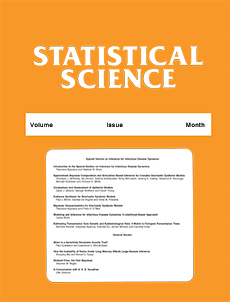Abstract
Bayesian experimental design (BED) provides a powerful and general framework for optimizing the design of experiments. However, its deployment often poses substantial computational challenges that can undermine its practical use. In this review, we outline how recent advances have transformed our ability to overcome these challenges and thus utilize BED effectively, before discussing some areas for future development in the field.
Funding Statement
Desi R. Ivanova was supported by the EPSRC Centre for Doctoral Training in Modern Statistics and Statistical Machine Learning (EP/S023151/1). Freddie Bickford Smith was supported by the EPSRC Centre for Doctoral Training in Autonomous Intelligent Machines and Systems (EP/S024050/1).
Acknowledgments
We would like to thank Dennis Prangle and Christian Robert for inviting us to write this paper and their helpful feedback during the review process. We would also like to thank the additional anonymous reviewer for their useful suggestions.
Citation
Tom Rainforth. Adam Foster. Desi R. Ivanova. Freddie Bickford Smith. "Modern Bayesian Experimental Design." Statist. Sci. 39 (1) 100 - 114, February 2024. https://doi.org/10.1214/23-STS915
Information





